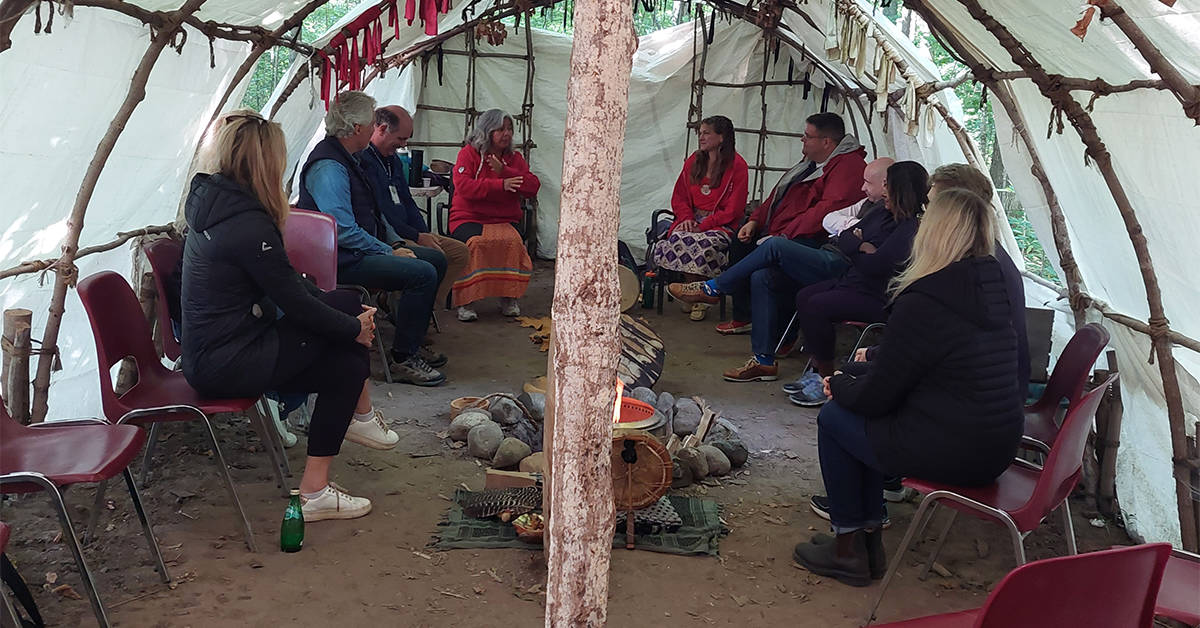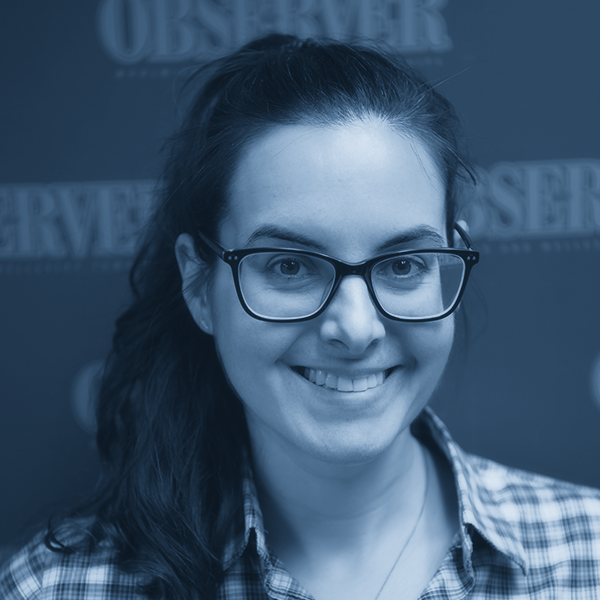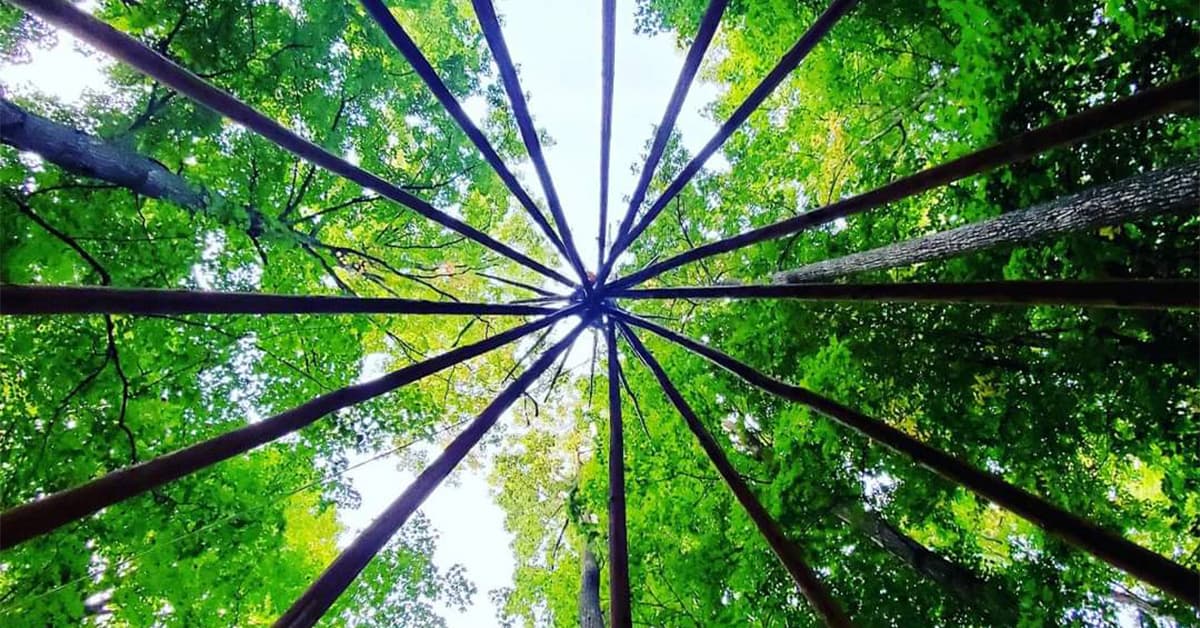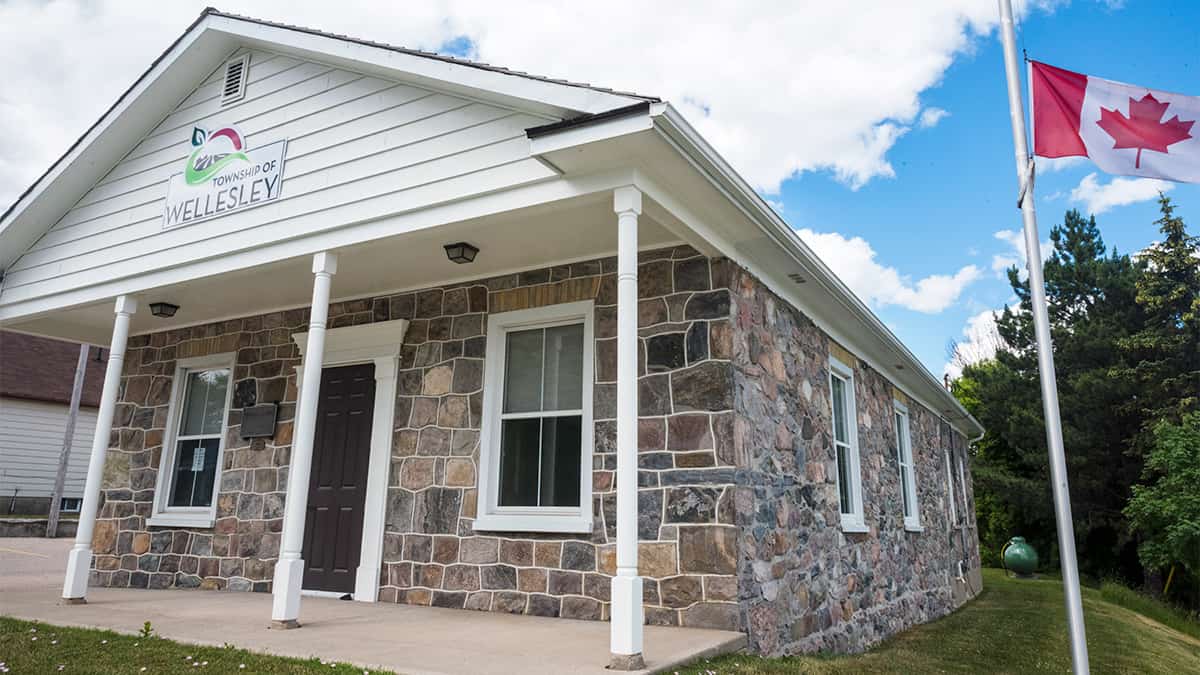To mark the National Day of Truth and Reconciliation, the Wilmot Ecumenical Working Group on Indigenous/Settler Relationships is hosting an event open to anyone in recognition of efforts to strengthen links with Indigenous communities.
The group’s co-chair, Marie Pavey, has lived in Baden for 30 years, but grew up near London.
“I personally went to school with Indigenous children. I grew up south of London, and there were three First Nations communities: Chippewas of the Thames First Nation, Oneida Nation of the Thames and Munsee-Delaware First Nation.
“I went to school from Grades 4 to 8 with these students, became friends with them, and I knew they had pain. Some of it they could talk about; some of it they couldn’t. And so for many years, I could set all that aside and I didn’t really think about it,” she said.
Among the offerings this weekend is a film screening hosted by the group. The film is “Martha of the North” and is the first in a series of four films the group is screening at Zion United Church, at 215 Peel St. in New Hamburg.
The Mennonite Historical Society of Ontario is hosting two events as well. The group is celebrating the Amish Bicentennial, which is the 200th anniversary of Amish settlement in Canada.
“One cannot address a settlement story in the 21st Century in Canada without recognizing and examining the broader story of how settlement impacted the indigenous community, who were already here,” said David Neufeld, an organizer with the Mennonite Historical Society of Ontario.
The group’s first Reconciliation Day event is a speaking event on Friday to listen to presenters focus on the question: when it comes to settlement, what are the stories we have not been telling? This event is open to anyone and takes place at Steinmann Mennonite Church at 1316 Snyder’s Rd. in Baden at 7:30 p.m., and is free to attend.
The group’s second event is an Indigenous Awareness Workshop held at Crowshield Lodge in New Hamburg on Saturday (October 1) from 10 a.m. to 1 p.m.
The cost to attend the workshop at Crowshield Lodge is $50 per participant, with preregistration required by emailing Neufeld at da.neuf11@gmail.com.
Clarence Cachagee, an Inidigenous community educator, and others will facilitate the workshop. It will take place around the fire, in a healing lodge near the Nith River. Leaders will share their own experiences of healing of indigenous/settler relationships. Participants will have time to ask questions and together talk about, “where do we go from here?” Lunch will also be included.
To anyone unsure if they would be welcome at the workshop, Neufeld says, “Crowshield Lodge is an extremely welcoming place. The focus is on healing and understanding. Everyone is accepted where they are on this journey of learning and understanding…. It’s more like a group of friends getting together to talk.”
“Martha of the North” is a 2008 film that tells the story of how the Canadian government moved 92 Inuit people from their homes in the Hudson Bay area to the harsh climate of the far north on Ellesmere Island, Resolute Bay and Cornwallis Island, 2,000 kilometres north, with scant supplies or training on how to live there.
Pavey says they picked this film as the kickoff to their series because it recounts events that happened in the 1950s. She says they wanted to start the series off earlier in time, and then move closer to present-day as it goes on. They also want to showcase Indigenous experiences from across Canada.
“I’m hoping (attendees) can connect on a human level to this story of dislocation. This story, it’s something that I don’t think a lot of people are aware of. If it happened to my community, it would be devastating,” she said. “It’s a beautiful story that is laid out very gently, and just to see what exactly happened and understand the profound impact that these things have had on Indigenous people.”
The Wilmot Ecumenical Working Group on Indigenous/Settler Relationships was formed in 2017 by a group of churches in the township as a way for local faith communities to respond to the Truth and Reconciliation commission’s call to action for churches.
Further films in the series will be screened at Zion United Church as follows:
Spirit to Soar (A follow up to Tanya Talaga’s book, Seven Fallen Feathers: Racism, Death and Hard Truths in a Northern City) – November 18 at 7 p.m.
Colonization Road (An exploration of the effects of road building by settlers on Indigenous land and culture) – Jan. 26, 2023 at 7 p.m.
Beans (A chronicle of the 78-day standoff in 1990 between two Mohawk communities and government forces in Quebec) – Mar. 31, 2023 at 7 p.m.
“Indigenous-settler relationships have been dysfunctional for a long time and it won’t change overnight,” said Neufeld. “Although it may take possibly even generations to heal this broken relationship, I believe that I have, and am seeing, progress.
“It’s pretty hard to understand where Indigenous people are coming from when you really don’t know the history and how we got to this point.”










